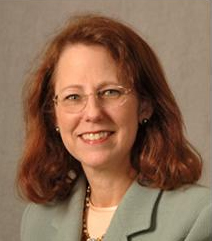Baby Boomer women are in trouble. Decreased fertility and increased life expectancy have made aging a feminist issue, according to new research from Stanford’s Global Aging Program.
“I have some bad news — it’s a mixed story,” said Adele Hayutin, the program’s director.
Hayutin argues that although people are living longer lives, older people — especially women — do not have control of enough resources to support themselves through retirement. She appeared at the Commonwealth Club in San Francisco Monday to try to make the case for a timely public-policy response to what she called a growing crisis.
By 2050, the United States will have 19 million 85-year-olds. And two-thirds of those 85 and older population will be female.
Women live an average of five years longer than men. Women make 80 cents for every dollar men earn. And older women have a 12 percent chance of living in poverty, compared with the 7 percent chance for men.
Women live longer for a number of reasons — less risky behavior, lower risk for heart disease and stronger immune systems, Hayutin said. She also noted that women across the world have been having fewer children.
“The key driver for population aging is fertility decline,” she said, noting that greater reproductive choice for women has, perhaps counterintuitively, led to fewer people to take care of them in old age.
But there are multiple phenomena putting older women in a trickier position in this century. In 1970, 40 percent of households were married couples with children. Now, only 23 percent of households fit that mold, so that fewer older women have that same traditional support systems. Divorce rates are also higher.
Looking at economic resources, Hayutin said culture and policy work against older women. Social security systems, she said, should allow women to record the time they spend taking care of children. That way they could earn retirement benefits while absent from the conventional workforce.
She also suggested that countries find ways to allow people to leave and reenter the workforce more easily, particularly so older people can go back to work and rely less on retirement plans — and the labor of a shrinking younger population.
Statistics show that the elderly population is growing faster in a few other countries.. Japan has the fastest-rising median age; by 2030, over half of its population will be older than 52. Hayutin said that an increasingly global economy, particularly one increasingly focused on Asia, aging abroad is every American’s problem.
An aging population could be even more of a problem for San Franciscans. Nancy Meyer, a Realtor who specializes in senior housing, said San Francisco’s particularly expensive real estate make housing a hurdle for seniors.
At Hayutin’s talk, Meyer spoke up about San Francisco’s significant gay population. She noted that gay couples are more often childless, and so they lack children to care for them as they age. Meyer cited Openhouse, which provides housing and community services to the elderly gay population, as an important organization that demonstrates the need for supporting the aged in the city. Lesbian, gay, bisexual and transgender seniors make up between 15 and 20 percent of San Francisco’s older population, according to Openhouse.
And Hayutin said there are additional demographic challenges.
“There is also a racial gap,” she said. “An ethnic gap. We need to have a conversation about all of these gaps.”
San Francisco’s population is about 50 percent white, 30 percent Asian and 8 percent African-American.
Hayutin urged the audience to push policy makers to address the “feminization of old age.” The alternative is waiting for an eventual humanitarian crisis.
The Global Aging Program is part of Stanford’s Center on Longevity. Hayutin’s lecture, “Population Aging as a Feminist Issue,” was part of the Commonwealth Club’s “The Ascent of Woman” series.










